With widespread fear and COVID infection rates on the rise, the movie of the week (October 18-24, 2020) is “It Comes at NIght” on Netflix.
Enter Trey Shults’ dread-filled end of days thriller about the high cost of survival, It Comes at Night.
Though regrettably (and I believe unfairly) shunned by genre audiences upon its release in 2017, Trey Edward Shults’ chilling and artful post-apocalyptic thriller is a terrifyingly relevant modern masterpiece that deserves a second look. Reflecting a microcosm of society at large, the society in this film consists of just two families forced to cohabitate in order to survive an apocalypse, brought about by a viral plague.
Expertly crafted and masterfully executed, It Comes at Night is a film about desperation, the pressure of survival, and the destructive nature of fear-based politics. Fear of the unknown reveals the darkest demons of human nature, including mistrust, paranoia, selfishness, and aggression. Audiences rejected it in the theaters, handing it a “D” CinemaScore, with most critiques stemming from the failure of the film to deliver on genre expectations. In fact, it may be more informative to view this film as more of a dystopian psychological drama and sociopolitical nightmare. There are no monsters that leap out from the shadows, no gory effects or jump scares.
The “it” that comes in this film is something far more insidious and horrifying than the flesh-eating zombies you might expect from a film about a population-ending plague. Instead, we’re giving an all-too-real scenario of a viral outbreak that goes for the jugular in its reflection of our more sinister social values and reactions in times of crisis.
THE RIGHT FILM FOR THE RIGHT TIME
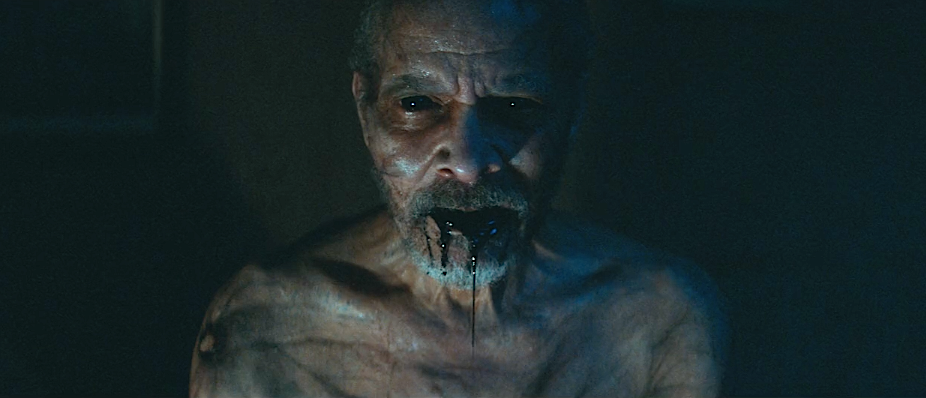
The world has already ended when It Comes at Night begins. An unseen entity haunts the landscape, and a flesh-eating disease has infiltrated the fortress of a home a family inhabits. The head of the family, Paul (Joel Edgerton), is forced to euthanize his own father-in-law and burn the corpse while his 17-year-old son Travis (Kelvin Harrison Jr.) looks on in horror.
Desperately clinging to the safety of their isolated rural home, Paul and his family live in a constant state of fear about what’s happening in the world outside. Their tense but controlled existence is threatened when a man named Will (Christopher Abbott) breaks into the house, thinking it’s empty. Will begs for mercy and asks for asylum for him and his family, including his wife Kim (Riley Keough) and his cherubic young son Andrew (Griffin Robert Faulkner).
Despite his distrust of outsiders, Paul agrees at the urging of his wife, Sarah (Carmen Ejogo). However, he initially treats Will like more of a prisoner than a refugee. The loving, affectionate dynamic between Will and his wife Kim plays in sharp contrast to the strained relationship of Paul and Sarah. While Will and Kim are equals, Sarah maintains a quietly tense and careful relationship with Paul, always mindful of his authoritarian rule of the household.
Much of the disorienting nature of the film results from Travis’ perspective and his stress-induced nightmares that cause the boundaries of reality and fantasy to blur.
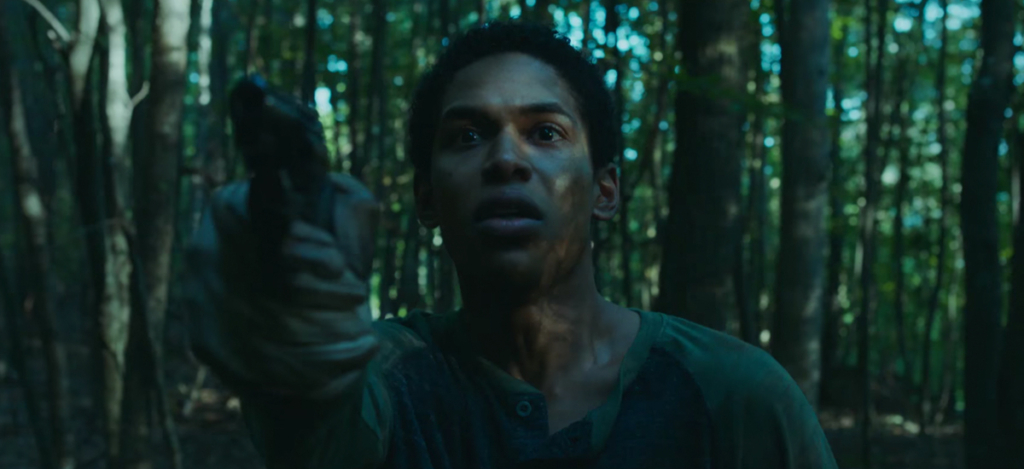
Coming-of-age in a bleak landscape of dread and despair, Travis is a sobering avatar for the generation of young people struggling to shape their identities amidst the real-world horror of present time.
Travis’ point of view becomes increasingly unreliable as he grows closer to Will’s family, especially the young and beautiful Kim. Despite surface attempts to merge the two families and form a harmonious society, Paul becomes alarmed by Travis’ growing attachment to the outsiders. This leads to increased tensions and unease between Paul and the other members of the household.
In the end, paranoia and fear prove to be more threatening to their safety and well-being than the real or perceived infection raging outside their home.
It all culminates in an explosive and devastating climax that leaves a lingering and hard to shake emotional impact.
WHY IT MATTERS
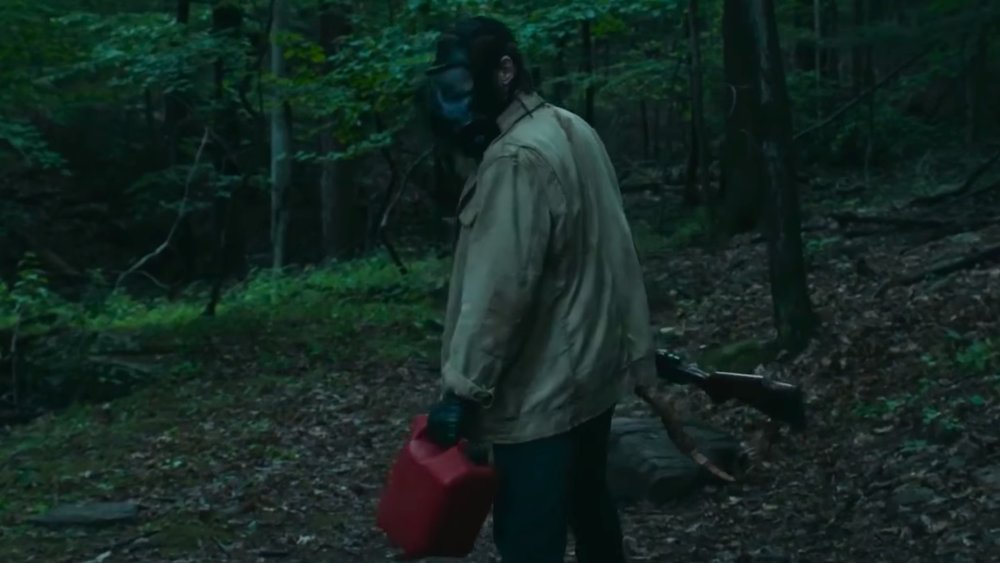
Brilliantly balancing literal and metaphorical horror, It Comes at Night is a cautionary tale about the collapse of a society as a result of fear.
Edgerton is a revelation as Paul, a conflicted man trying to do what’s best for his family while struggling with his own uncertainty about the difficult decisions he must make to keep them safe. Despite good intentions, his fear clouds his judgment, and his descent into hypervigilant-induced madness is harrowing to watch. Without access to what’s really happening in the outside world, the family is held hostage by Paul’s growing paranoia, and their survival comes at the expense of their own freedom and happiness.
It’s a painful parallel to current events and America’s growing mistrust of the government amidst a campaign of misinformation, denial, obfuscation, and shifting blame.
When Paul asks, “Do you know what people are capable of when they’re desperate?” it’s a horrifying encapsulation of the film’s overarching theme. In the absence of trust, compassion, and empathy, what is left of society worth fighting for? If survival means building walls and fortifying yourself against the threat of “other”, do the means ever justify the ends?
Ultimately, It Comes at Night forces us to confront how we would react in a similar situation and what we’d be willing to do to survive. It begs the question… are we really safer on the other side of the big red door?
WATCH IT NOW
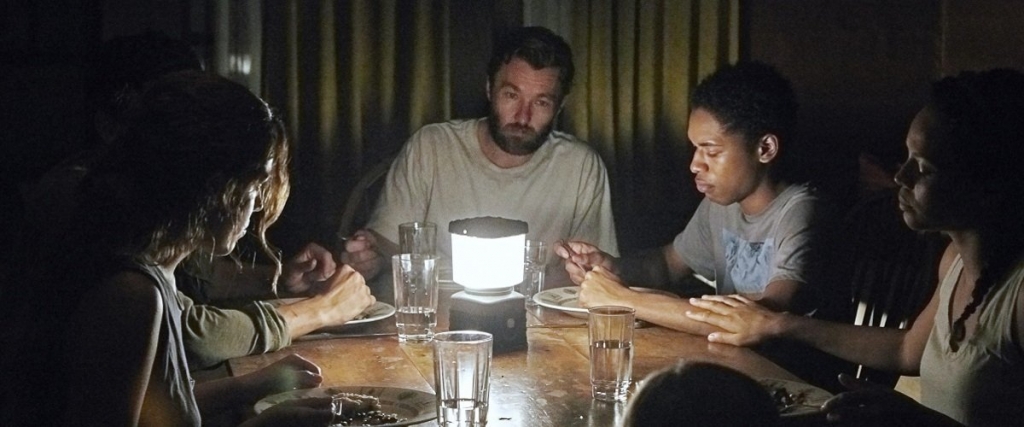
A mixture of stellar acting, unbearable tension, and visually striking craftsmanship make It Comes at Night a must watch.
And although it definitely deviates from genre expectations, I reject that notion that It Comes at Night lacks scares. Shults has crafted a nerve-racking experience fueled by a constant sense of dread, palpable unease, and fear of the unknown. Long, slow pans down empty corridors, lush shots of isolated woods, and a growing sense of claustrophobic anxiety infuse terror into this slow-burning allegory of isolationism and fearmongering.
Ignore what you may have heard and check your genre preconceptions at the door. This film is nothing like what you’re expecting, and that’s what makes it such a deft and transcendent work of filmmaking.
It Comes At Night is now available on Netflix.


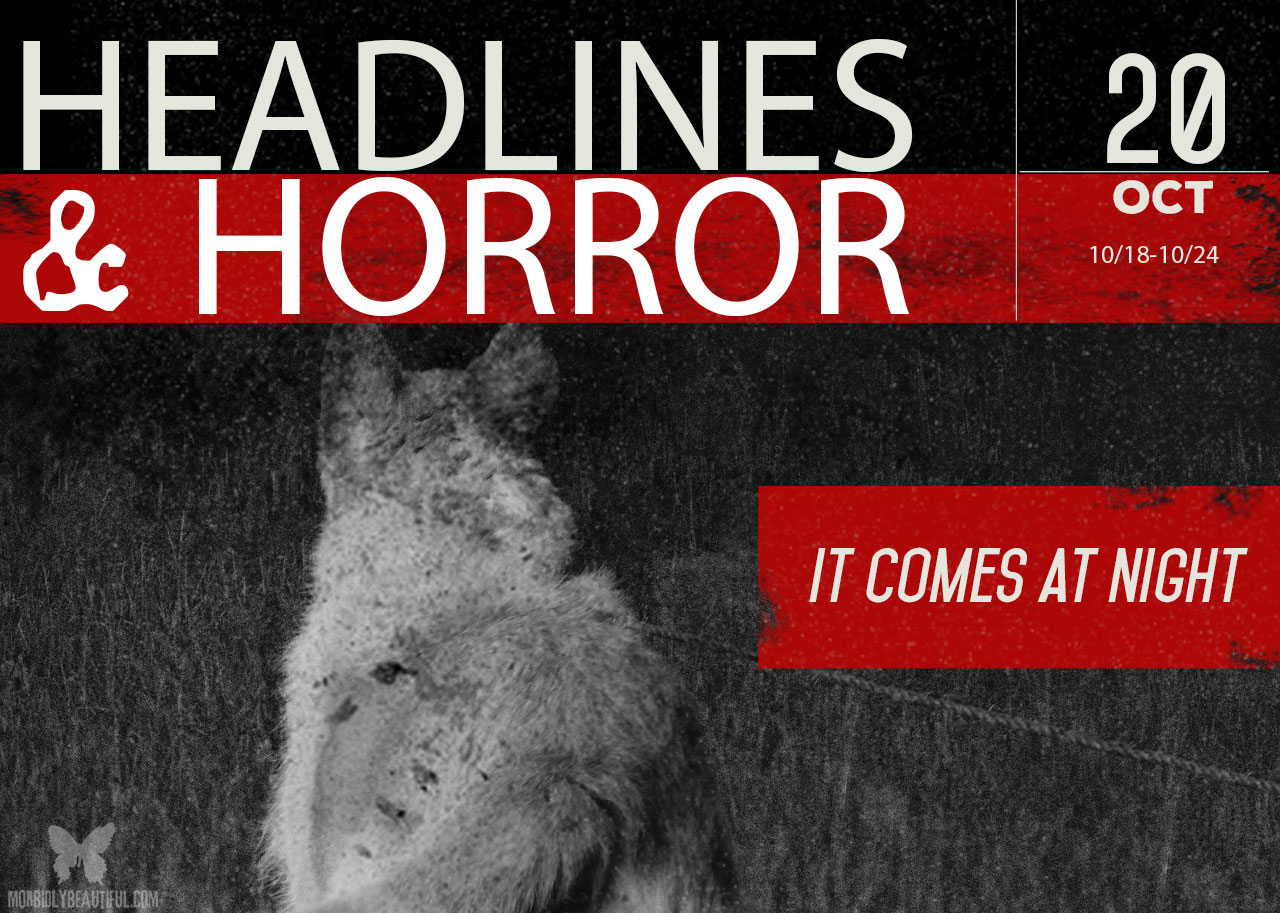












Follow Us!